
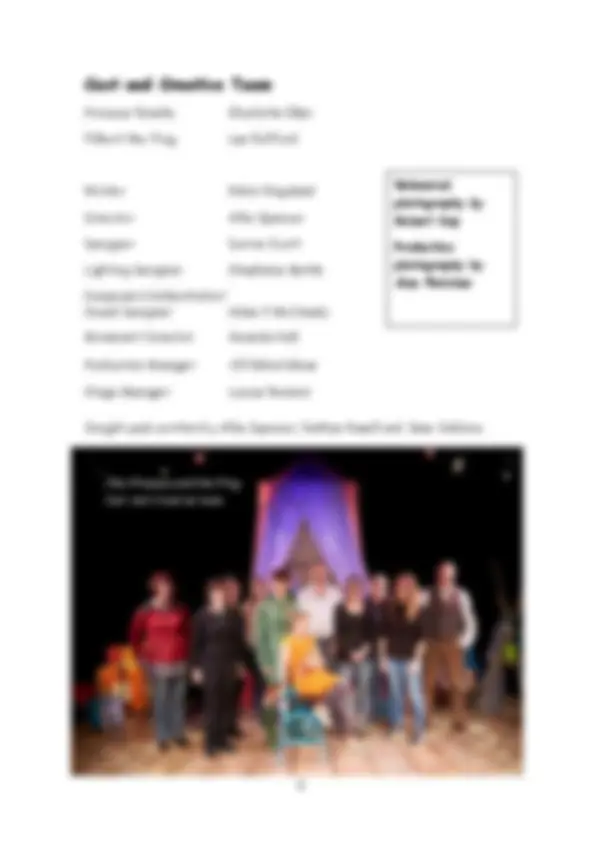
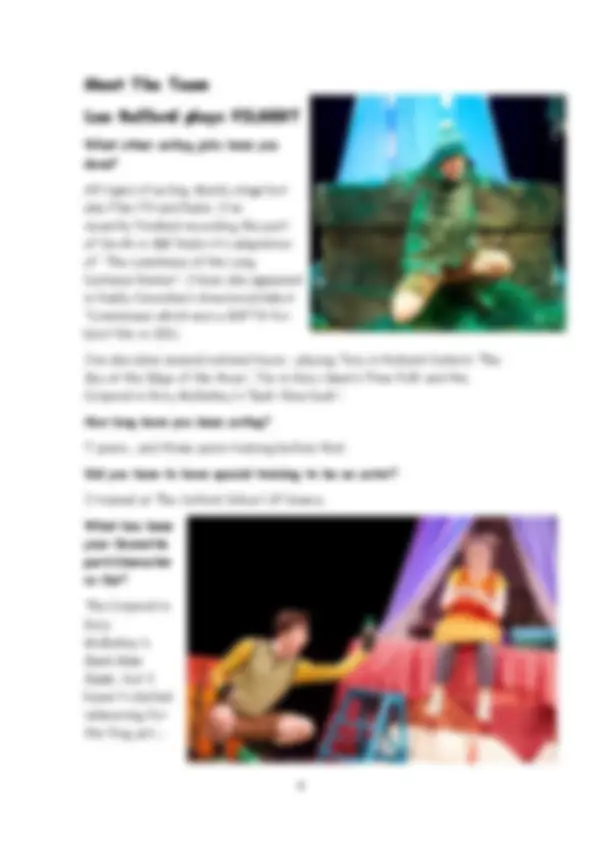
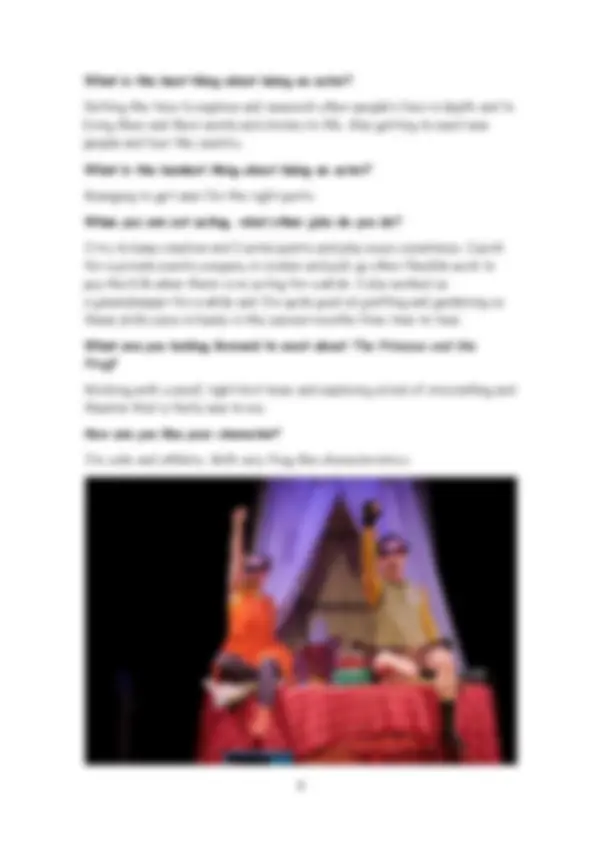
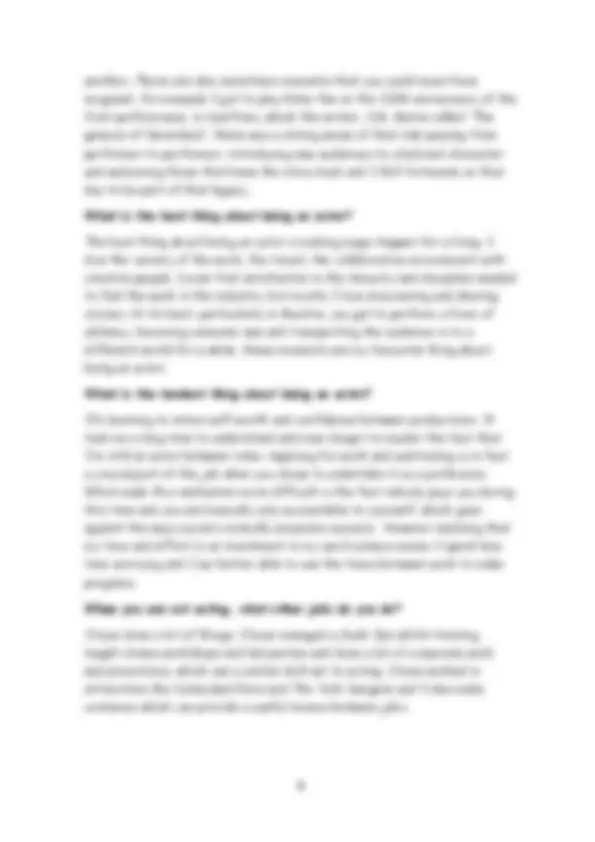
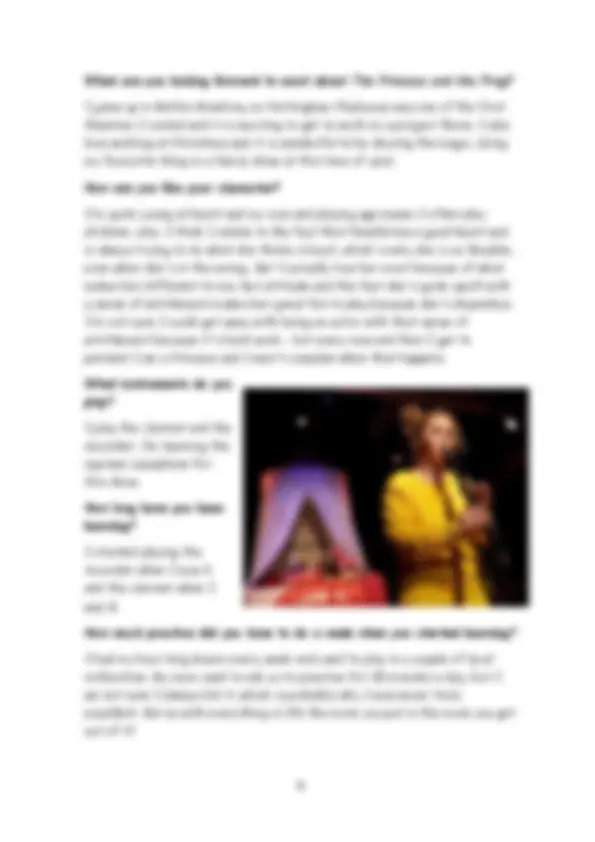
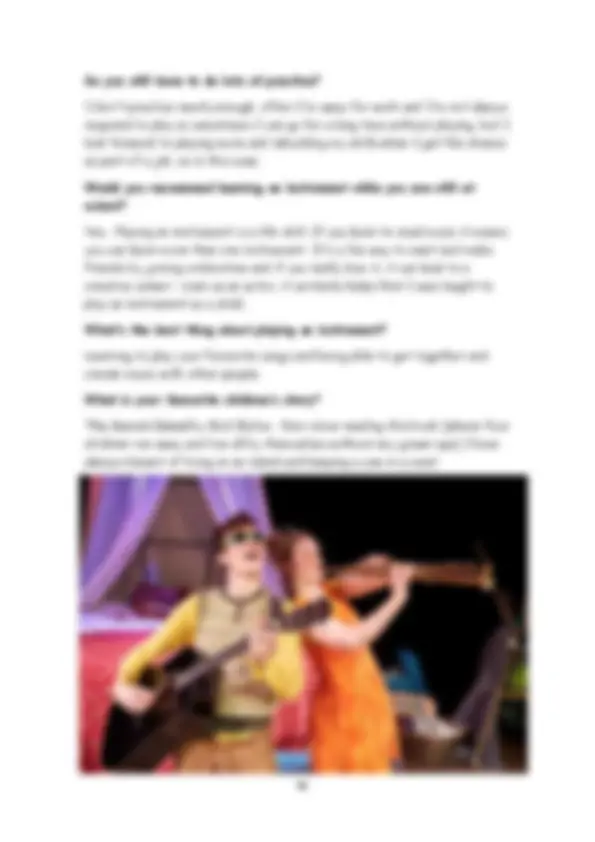
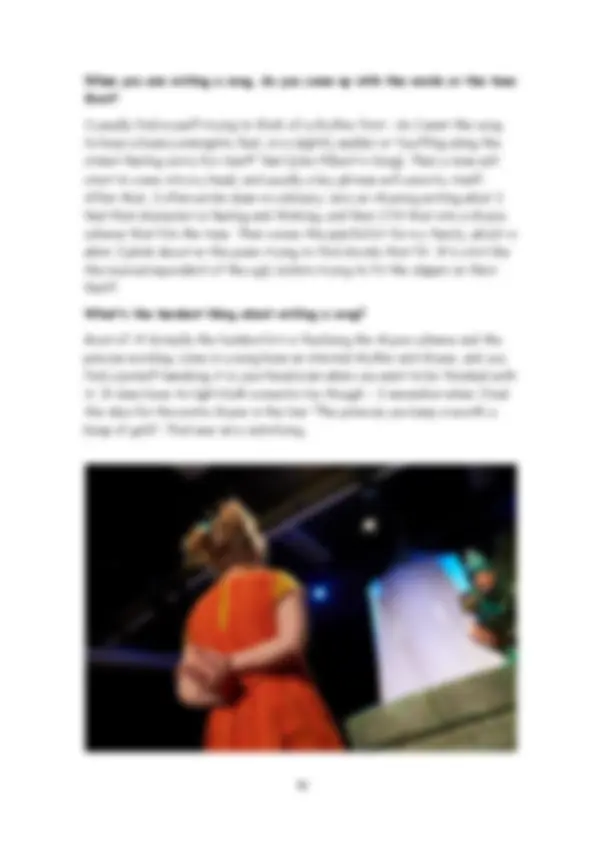
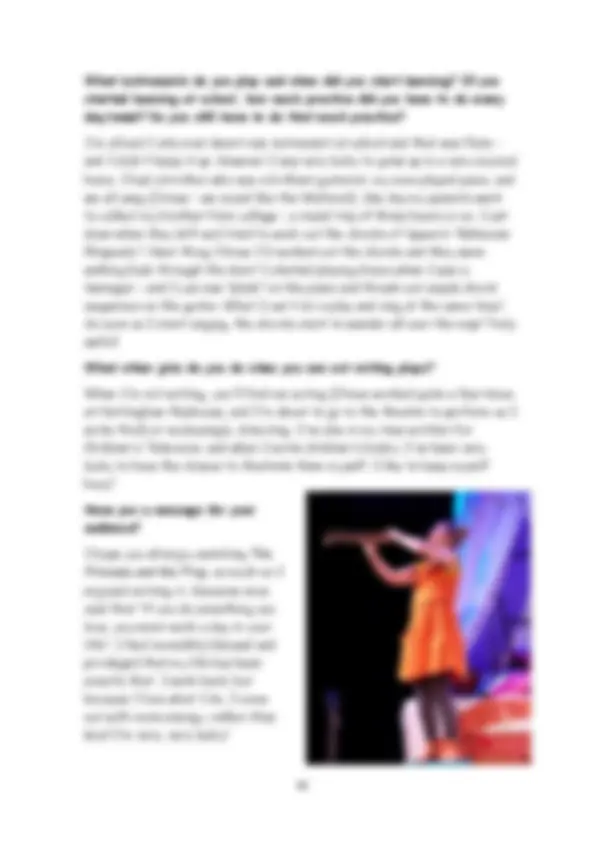
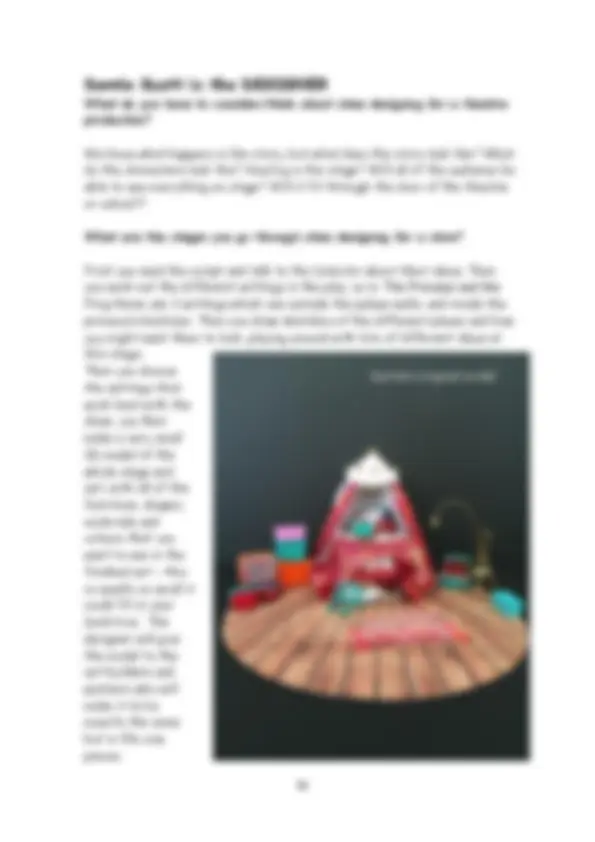
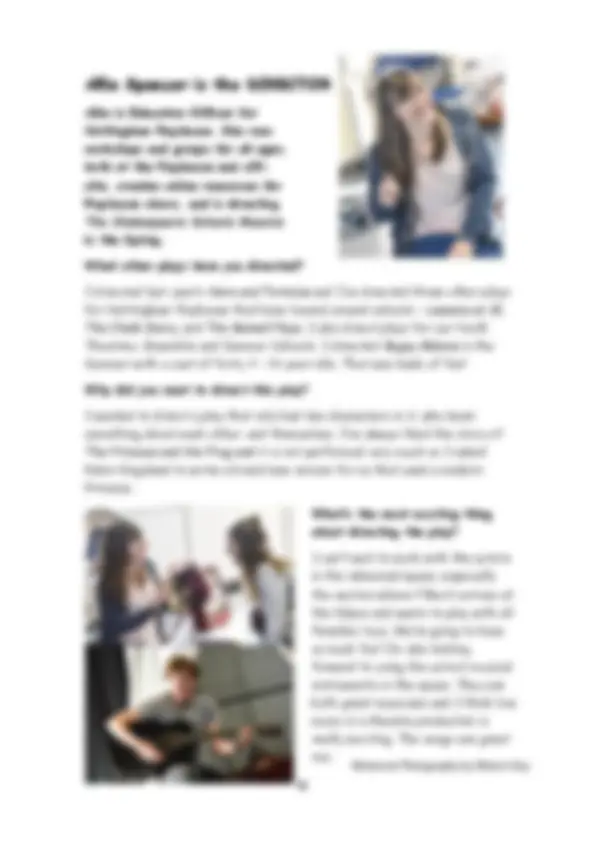
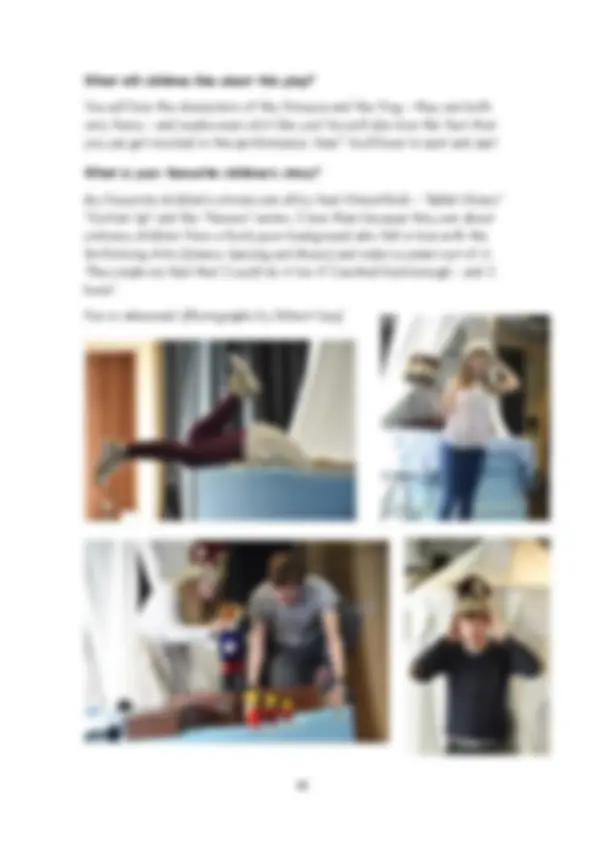
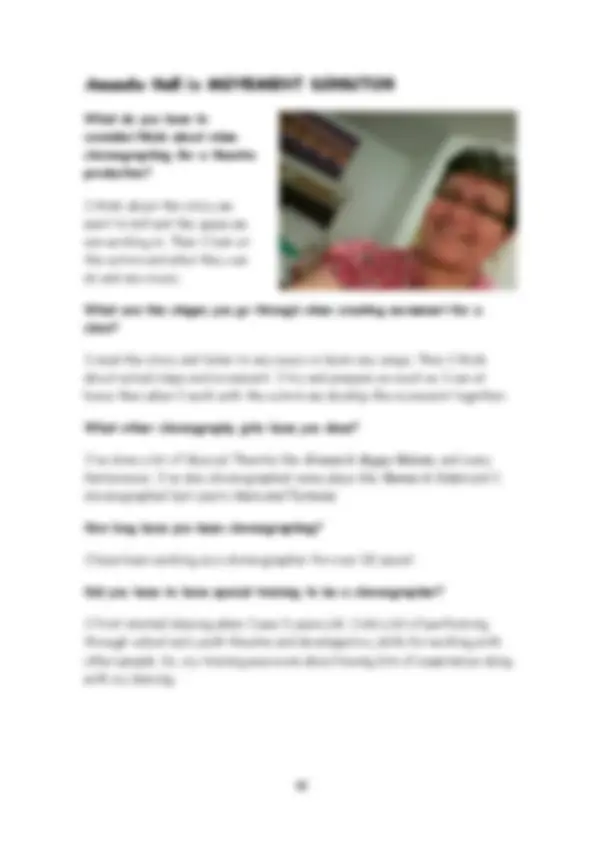
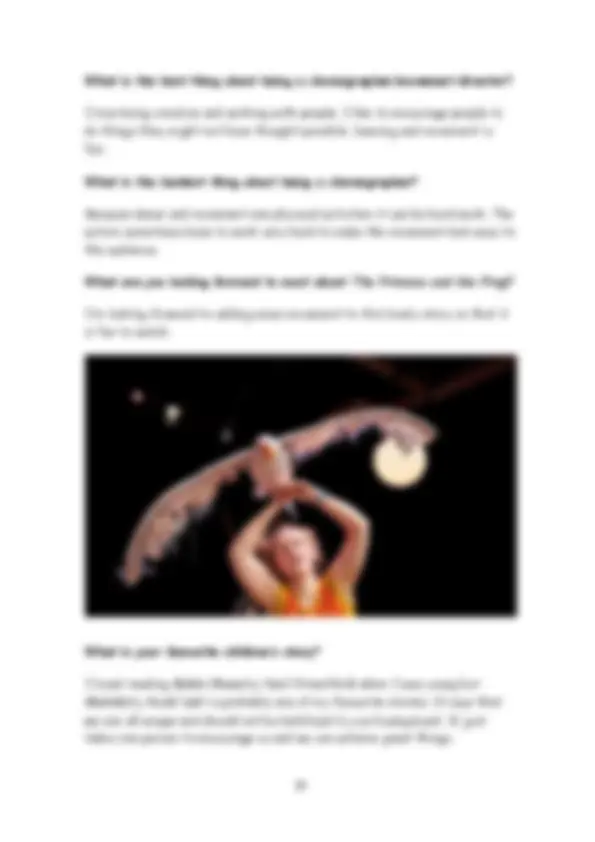
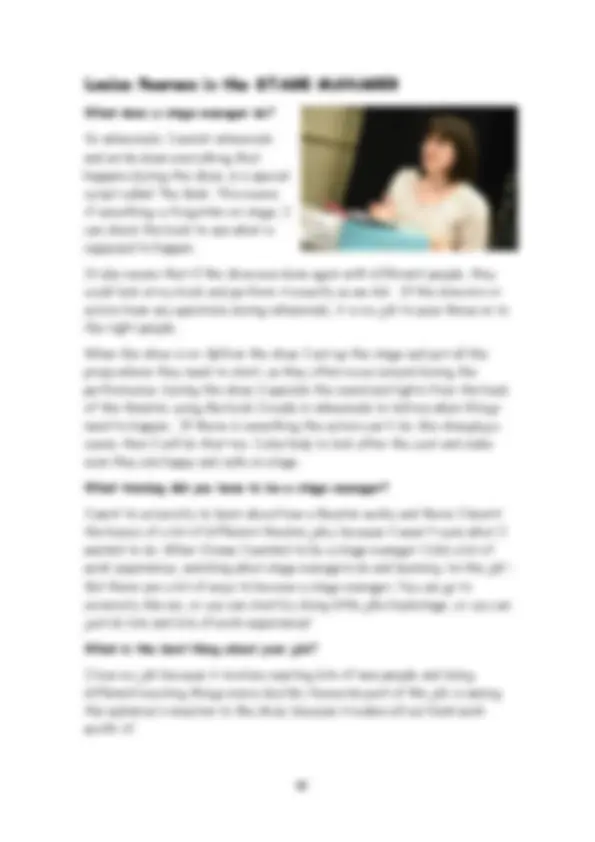
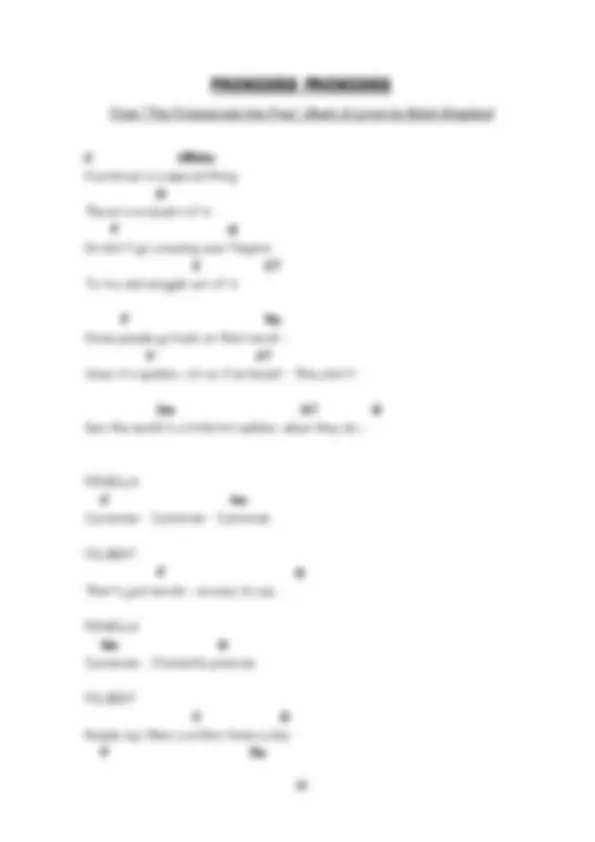
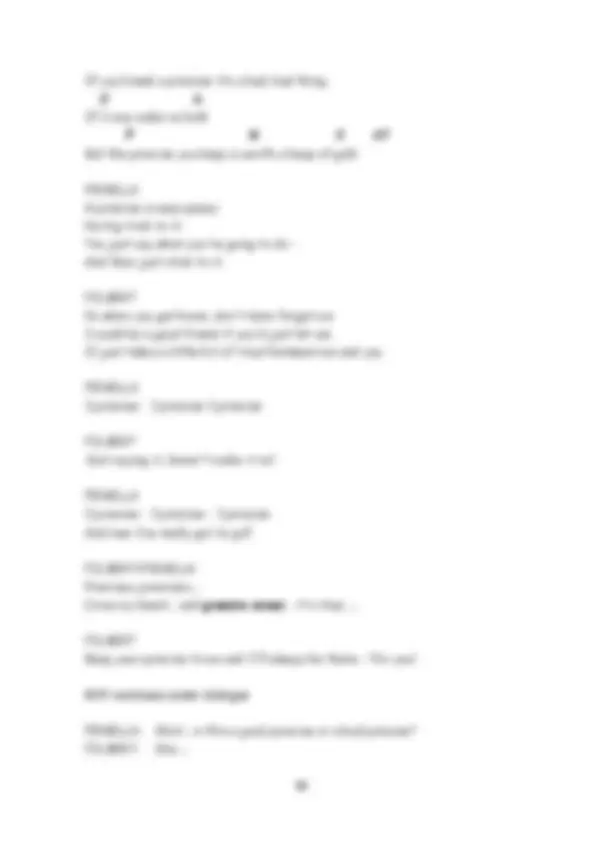
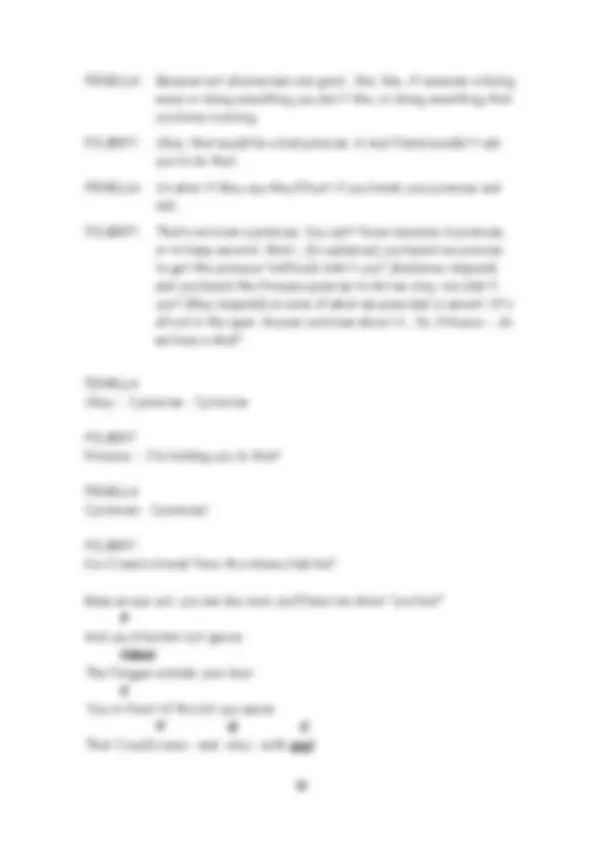
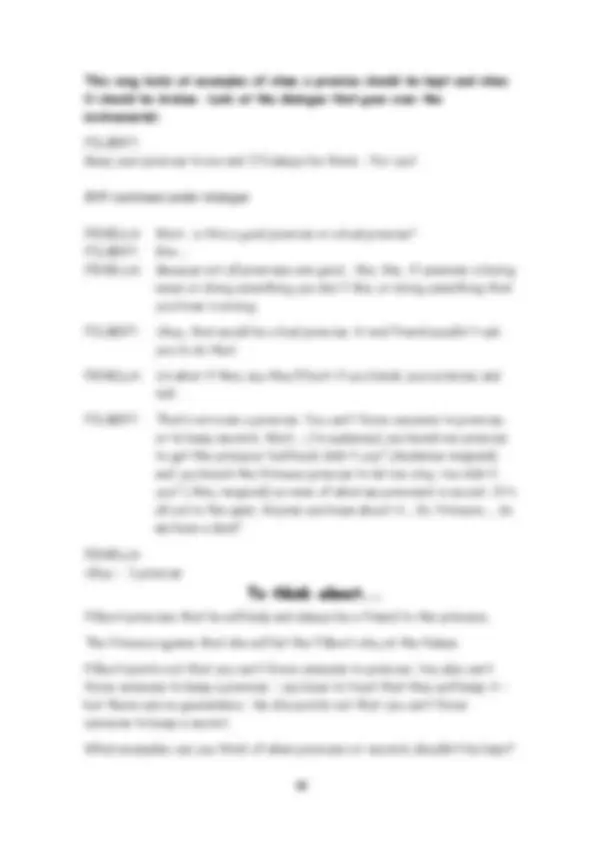
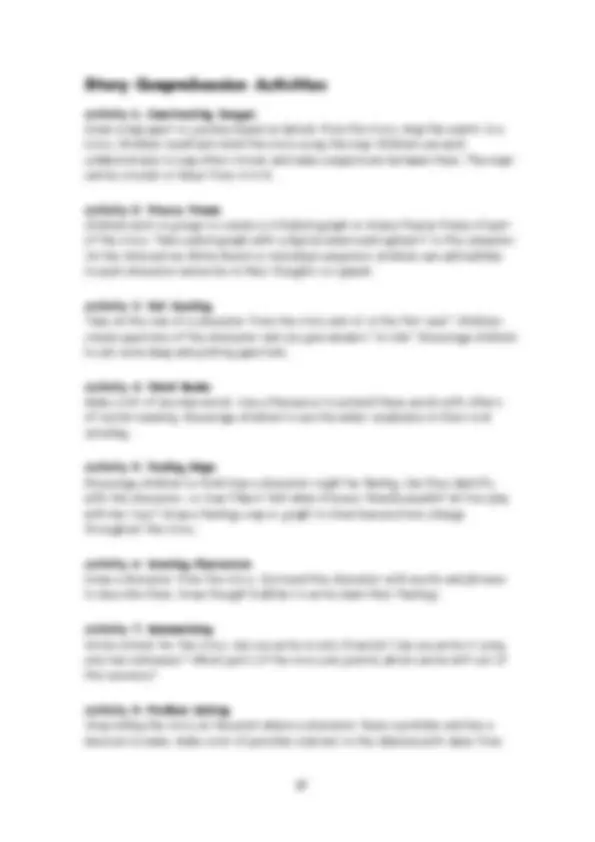
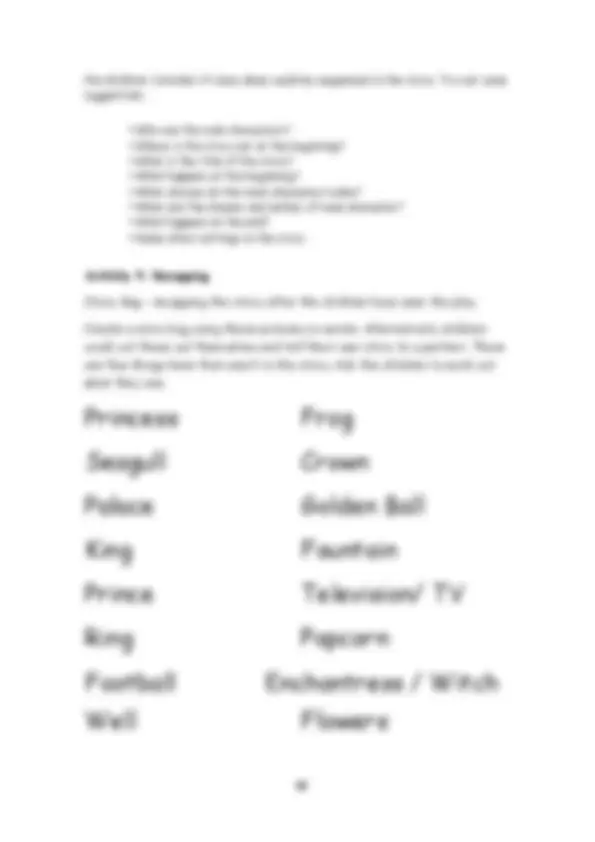
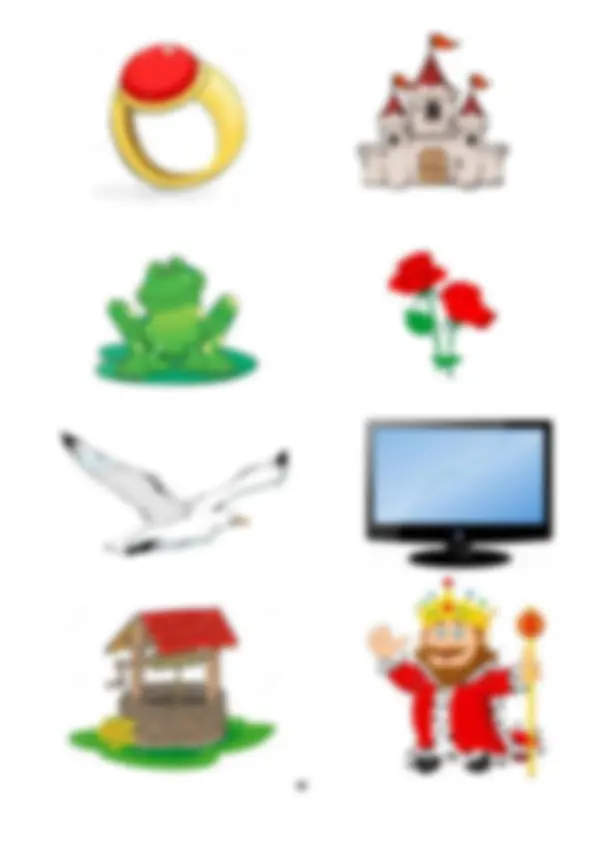
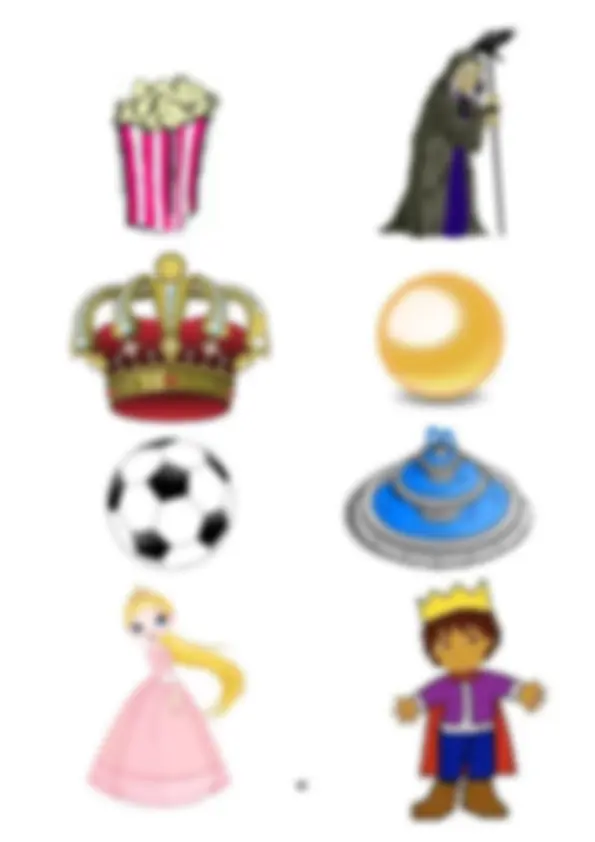
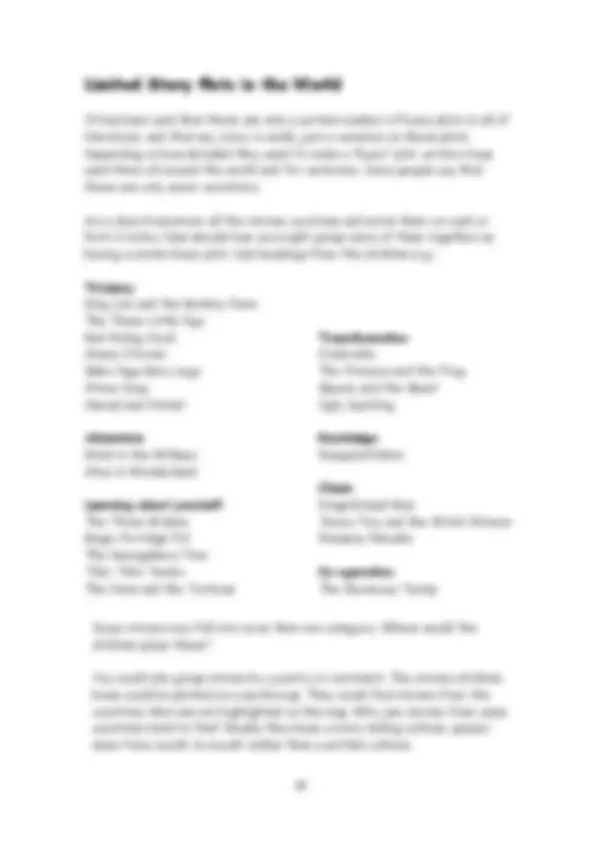
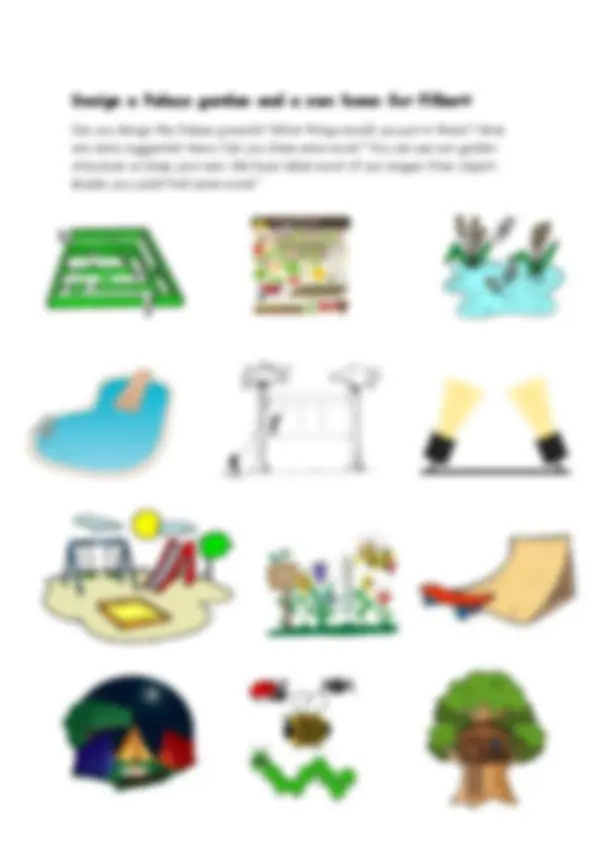
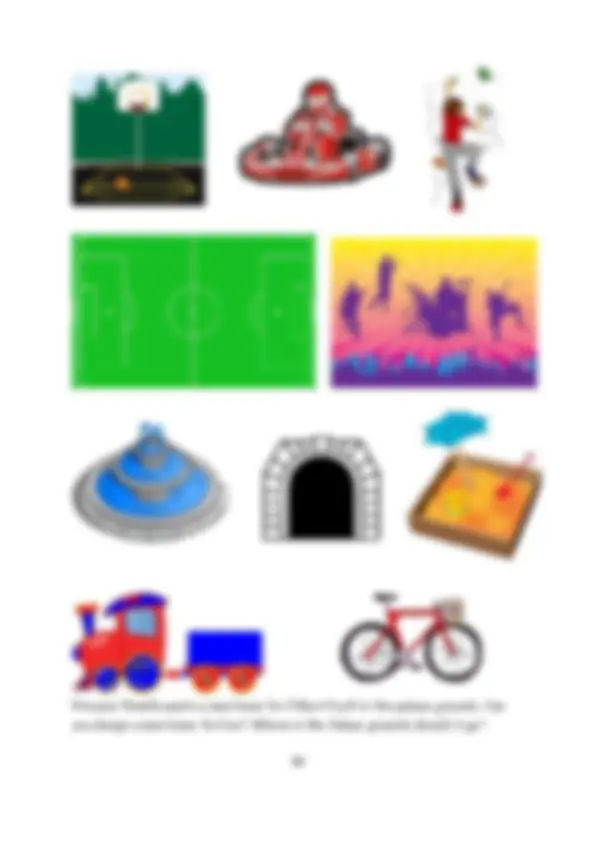
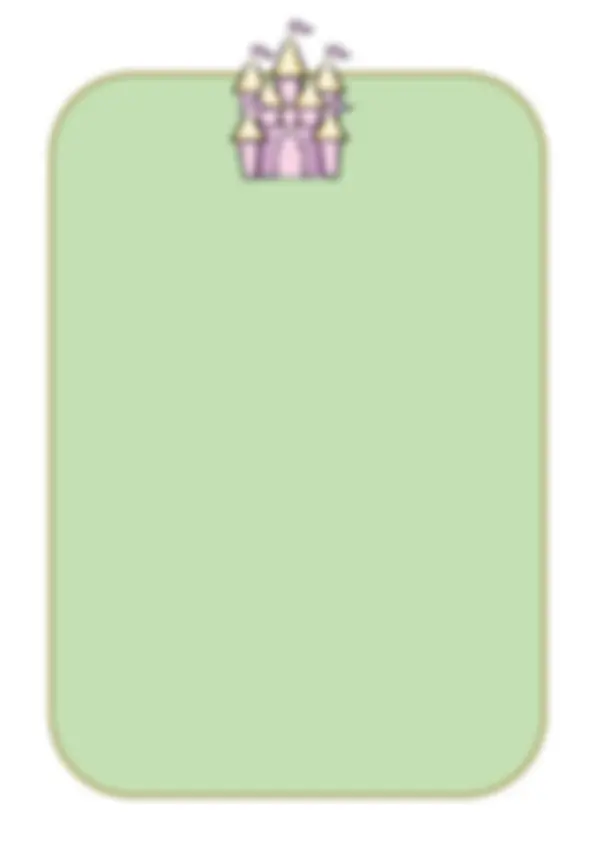
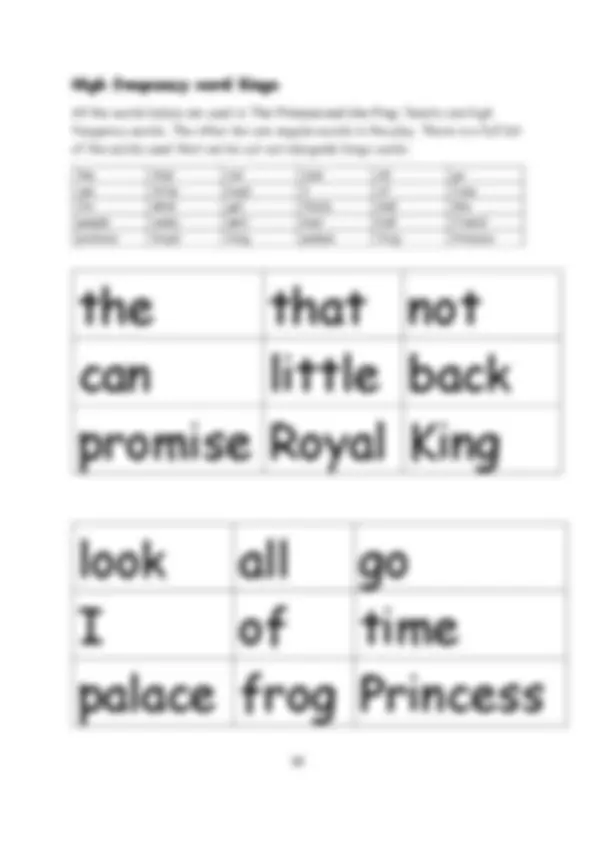
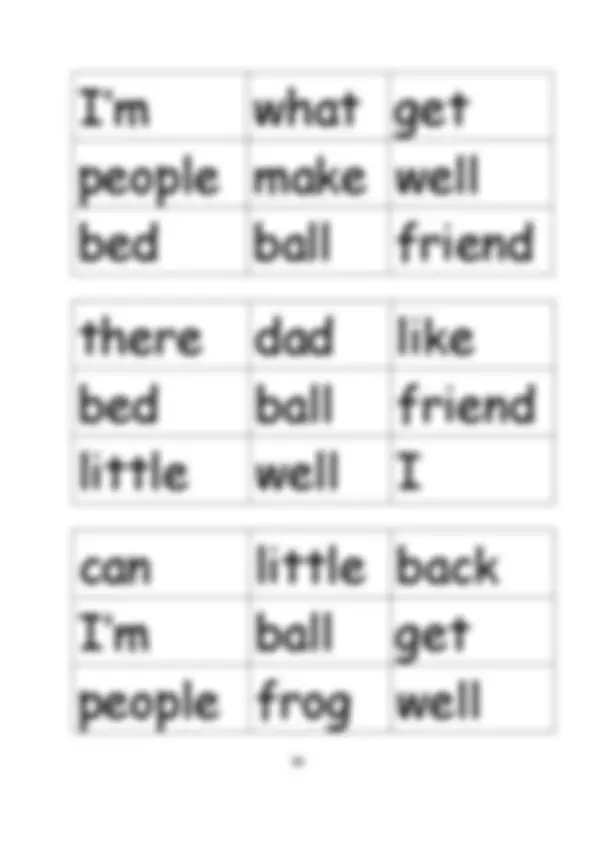
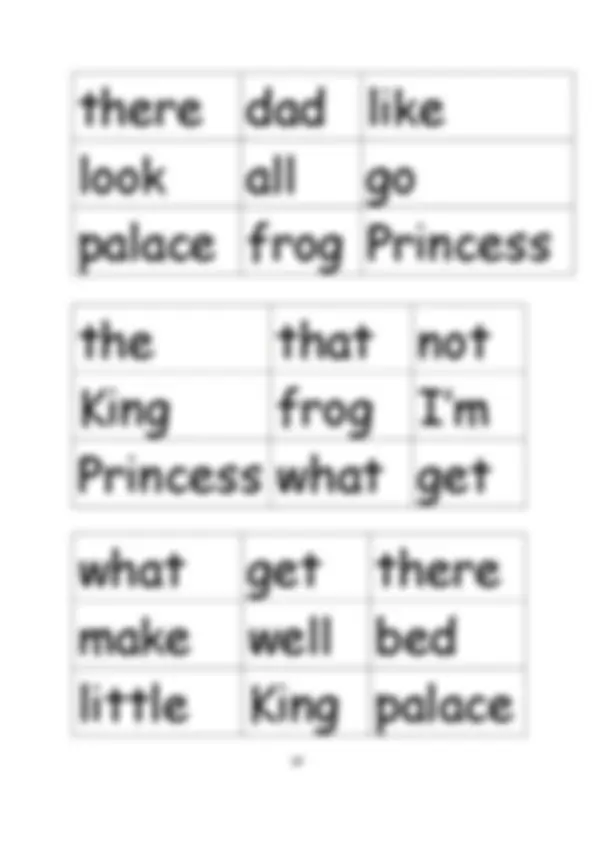
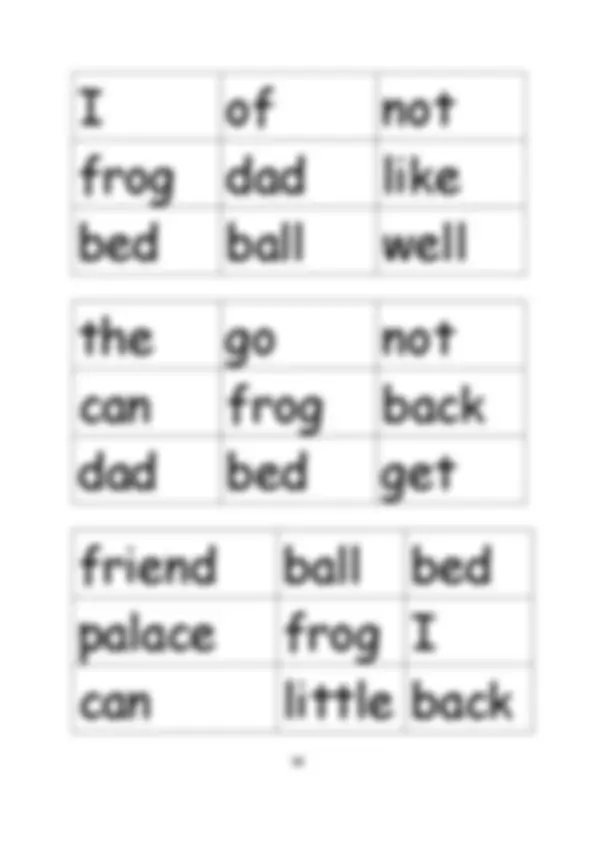
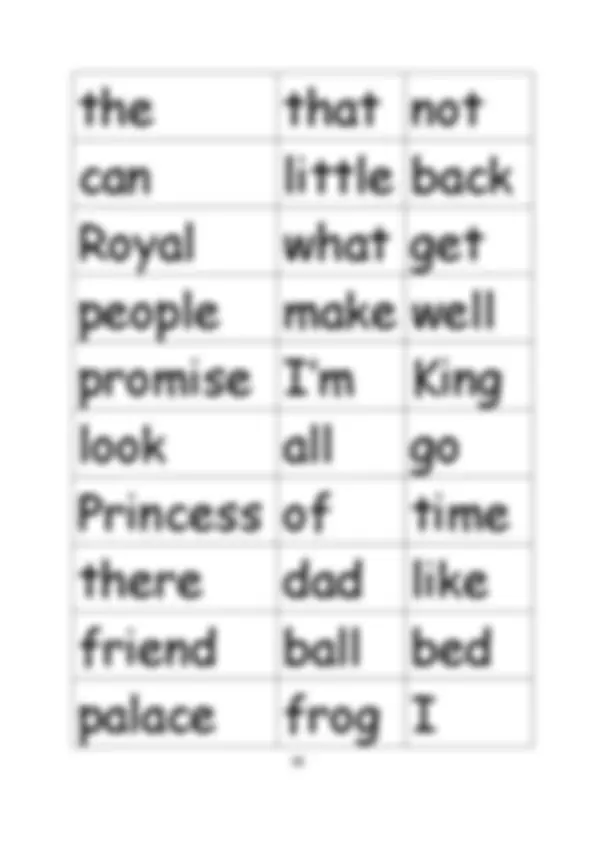
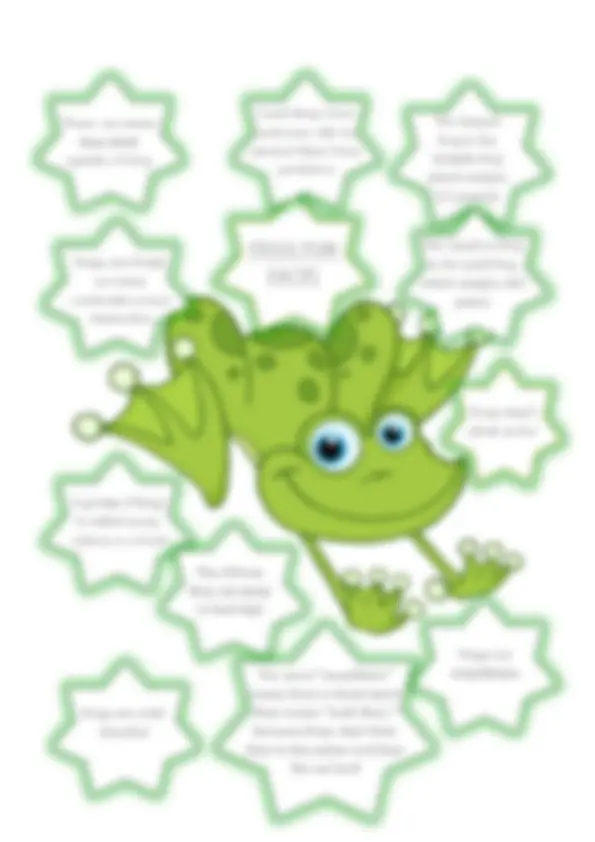
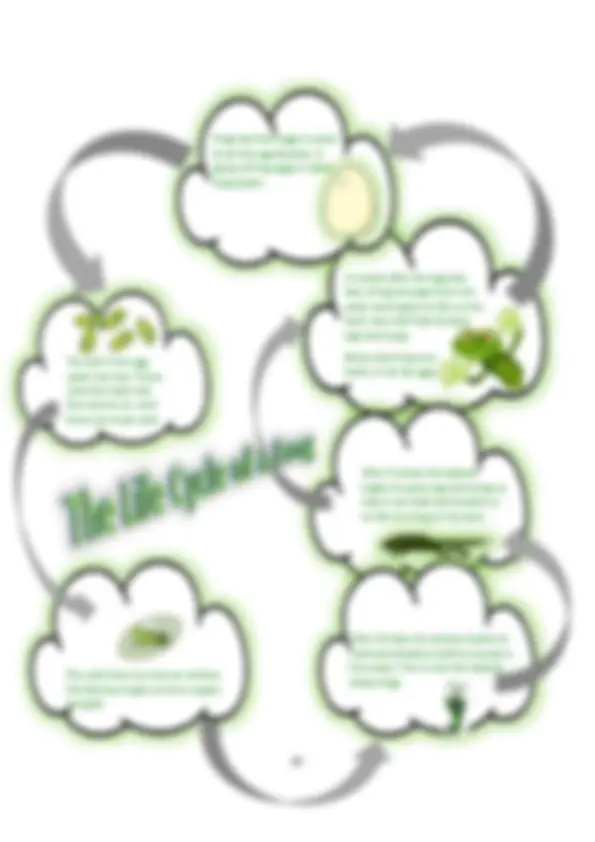
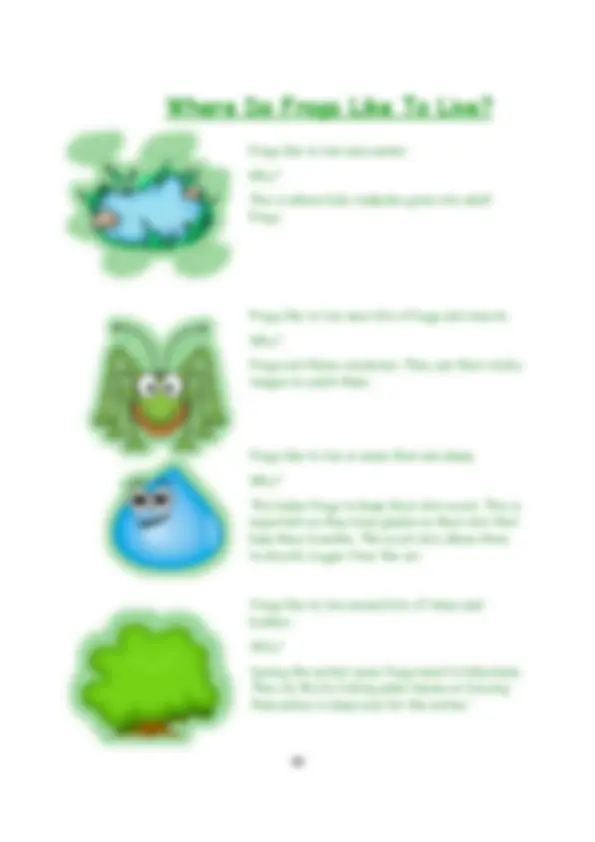

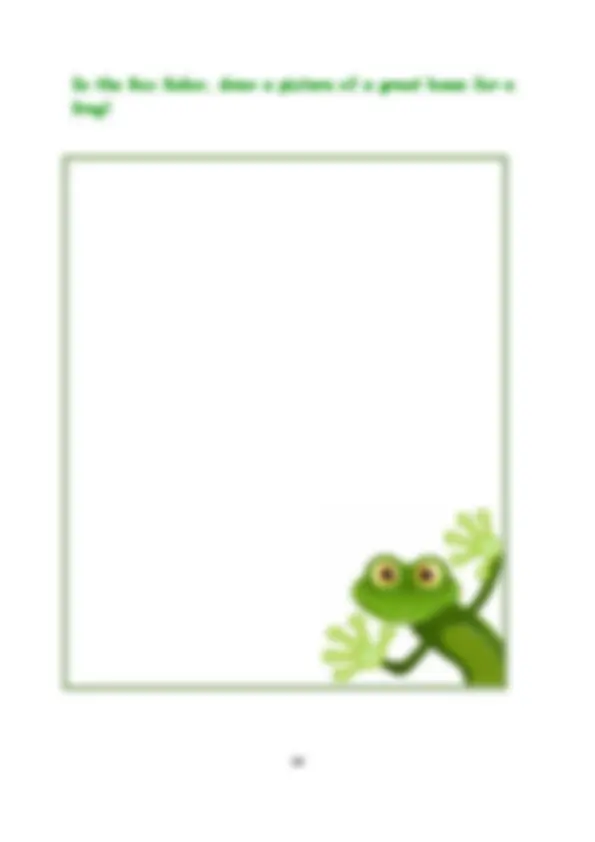
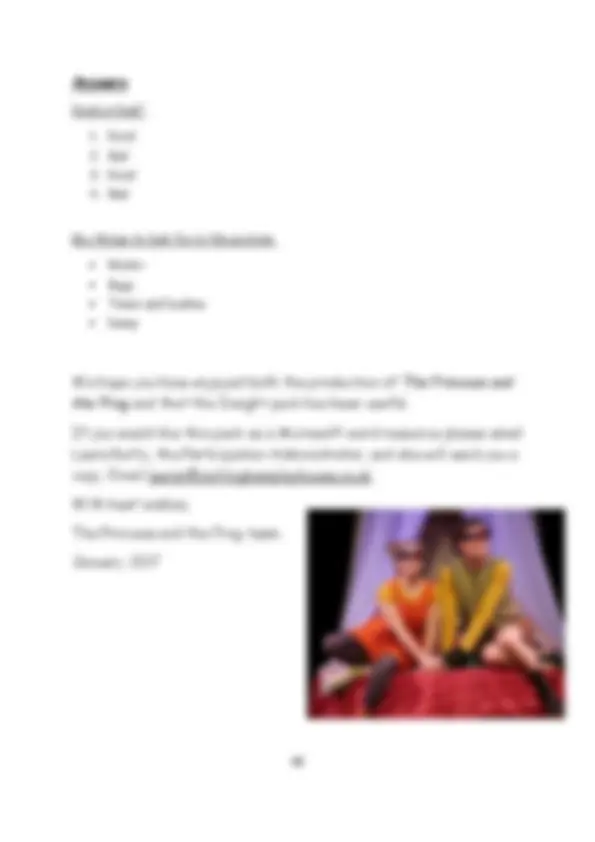


Study with the several resources on Docsity

Earn points by helping other students or get them with a premium plan


Prepare for your exams
Study with the several resources on Docsity

Earn points to download
Earn points by helping other students or get them with a premium plan
Community
Ask the community for help and clear up your study doubts
Discover the best universities in your country according to Docsity users
Free resources
Download our free guides on studying techniques, anxiety management strategies, and thesis advice from Docsity tutors
This insight pack provides a synopsis of the children's play 'The Princess and the Frog', details about the cast and creative team, and insights from the play's writer and designer, Allie Spencer. Allie shares her experiences in the acting industry, her love for storytelling, and the inspiration behind her designs for Fenella and Filbert.
What you will learn
Typology: Lecture notes
1 / 45

This page cannot be seen from the preview
Don't miss anything!






































Plot Synopsis 2
Cast and Creative Team 3
Meet the Team 4
Promises Promises – the song, the chords, and food for thought 23
Story Comprehension Activities 27
Limited story plots in the World 31
Design the Palace gardens and a new home for Filbert 32
High frequency word Bingo 35
Frog fun facts 40
Where do frogs like to live? 42
If you would like this as a Microsoft word resource please email us and we will send it to you laurar@nottinghamplayhouse.co.uk
Filbert the Frog lives in a well in the wood at the bottom of the Palace Garden. One day Princess Fenella is playing with her dad’s golden ball and she drops it. It lands at the bottom of the well. Filbert says he will rescue it on three conditions – that he should be a guest at the Royal Palace, that he should be able to sit with the princess in the palace and watch TV and eat snacks, and that he can sleep in one of the palace beds. The Princess agrees and leaves with the golden ball. She is horrified when Filbert appears at the Royal Palace expecting the promises to be fulfilled. Once at the Palace the Princes and the frog become friends and Filbert is able to explain to the Princess that he is under a spell from an enchantress as a punishment for breaking promises. Should he not have found someone able to keep their promises to him within a year and a day he will be gobbled up by a seagull. As time runs out, Princess Fenella and Filbert have to fight the evil seagull to save Filbert’s life. As Fenella saves Filbert’s life and shows him true friendship, the results of the spell begin to dissolve and Filbert is transformed back into a Prince.
What other acting jobs have you done?
All types of acting. Mainly stage but also Film/TV and Radio. I've recently finished recording the part of Smith in BBC Radio 4's adaptation of 'The Loneliness of the Long Distance Runner'. I have also appeared in Paddy Considine’s directorial debut Tyrannosaur which won a BAFTA for best film in 2011.
I’ve also done several national tours - playing Tony in Richard Conlon’s ‘The Boy at the Edge of the Room’, Tim in Gary Owen’s ‘Free Folk’ and the Corporal in Rory Mullarkey's ‘Each Slow Dusk'.
How long have you been acting?
7 years... and three years training before that.
Did you have to have special training to be an actor?
I trained at The Oxford School Of Drama.
What has been your favourite part/character so far?
The Corporal in Rory Mullarkey's Each Slow Dusk. .. but I haven't started rehearsing for the frog yet...
What is the best thing about being an actor?
Getting the time to explore and research other people’s lives in depth and to bring them and their words and stories to life. Also getting to meet new people and tour the country.
What is the hardest thing about being an actor?
Managing to get seen for the right parts.
When you are not acting, what other jobs do you do?
I try to keep creative and I write poetry and play music sometimes. I work for a private events company in London and pick up other flexible work to pay the bills when there is no acting for a while. I also worked as a greenskeeper for a while and I'm quite good at grafting and gardening so these skills come in handy in the summer months from time to time.
What are you looking forward to most about The Princess and the Frog****?
Working with a small, tight-knit team and exploring a kind of storytelling and theatre that is fairly new to me.
How are you like your character?
I'm calm and athletic. Both very frog-like characteristics.
What other acting jobs have you done?
I have just finished playing Phyllis in The Fletton Railway Children in Peterborough and before that I was performing the part of Leonid Borodin in a new dramatisation of a lost Russian book. I have done a fair bit of Shakespeare playing roles as varied as Puck and Emilia in Othello, Phebe in As You Like It and Juliet Capulet.
I love panto and have played Peter Pan, Cinderella, Maid Marion and the Villain, Fleshcreep. Once I had to go on as the Dame (Nurse Penny Cillin) at two hours notice because one of the cast got sick.
How long have you been acting?
I have been acting professionally for 5 years, since I completed my repertory training, but I did my first professional job 10 years ago. I have known it was what I wanted to do since I studied drama at school at the age of 15.
Did you have to have special training to be an actor?
I think I have been constantly 'training' since I began acting. Like any craft there is always more learning and honing of skills to do, so you certainly can, and will, get better by doing the work, regardless of whether or not you formally train first. I trained in a very traditional way as an apprentice with a repertory company which I loved and helped me develop strength and versatility of voice, emotion and physicality as well as teaching me to read and access a text quickly to recognise character and structure. However, I know training at an accredited drama school can be very useful, especially when you are starting out.
What has been your favourite part/character so far?
I honestly enjoy the variety in the roles I get to play, having said that there are always the classic roles which you dream about playing and it's fun when those opportunities come up. A Midsummer Night's Dream's Puck was certainly one of those, Elvira, the mischievous ghost in Blithe Spirit was
another. There are also sometimes moments that you could never have imagined, for example I got to play Peter Pan on the 110th anniversary of the first performance, in Dumfries, which the writer, J.M. Barrie called 'The genesis of Neverland', there was a strong sense of that role passing from performer to performer, introducing new audiences to a beloved character and welcoming those that knew the story back and I felt fortunate on that day to be part of that legacy.
What is the best thing about being an actor?
The best thing about being an actor is making magic happen for a living. I love the variety of the work, the travel, the collaborative environment with creative people, I even find satisfaction in the tenacity and discipline needed to find the work in the industry, but mostly I love discovering and sharing stories. At its best, particularly in theatre, you get to perform a form of alchemy, becoming someone new and transporting the audience in to a different world for a while, these moments are my favourite thing about being an actor.
What is the hardest thing about being an actor?
It’s learning to retain self-worth and confidence between productions. It took me a long time to understand and even longer to master the fact that I'm still an actor between roles. Applying for work and auditioning is in fact a crucial part of the job when you chose to undertake it as a profession. What made this realisation more difficult is the fact nobody pays you during this time and you are basically only accountable to yourself, which goes against the ways society normally measures success. However realising that my time and effort is an investment in my own business means I spend less time worrying and I am better able to use the times between work to make progress.
When you are not acting, what other jobs do you do?
I have done a lot of things; I have managed a Sushi Bar whilst training, taught drama workshops and led parties and done a lot of corporate work and promotions, which use a similar skill set to acting. I have worked in attractions like Disneyland Paris and The York Dungeon and I also make costumes which can provide a useful income between jobs.
Do you still have to do lots of practice?
I don't practice nearly enough, often I'm away for work and I'm not always required to play so sometimes I can go for a long time without playing, but I look forward to playing more and rebuilding my skills when I get the chance as part of a job, as in this case.
Would you recommend learning an instrument while you are still at school?
Yes. Playing an instrument is a life skill. If you learn to read music it means you can learn more than one instrument. It's a fun way to meet and make friends by joining orchestras and if you really love it, it can lead to a creative career - even as an actor, it certainly helps that I was taught to play an instrument as a child.
What’s the best thing about playing an instrument?
Learning to play your favourite songs and being able to get together and create music with other people.
What is your favourite children’s story?
The Secret Island by Enid Blyton. Ever since reading this book (where four children run away and live all by themselves without any grown-ups) I have always dreamt of living on an island and keeping a cow in a cave!
What’s the best thing about being a writer?
The best thing is when you suddenly think of an idea - a line, or a bit of action - that you just know will work and solve a problem or create a moment that very simply tells you a lot about the characters or the story. There's a posh word for it - "Epiphany" - but most writers just call it a "light-bulb moment" because it's just like the moment when a character in a cartoon strip gets an idea and a little light-bulb appears above their head. See if you can guess when I had my "light- bulb" moments in "Princess and the Frog"!
How many plays have you written?
I've written eighteen plays - including plays for young audiences, young adults, and adults, three "Urban Family Pantos" and a hip-hop blank verse adaptation of A Midsummer Night's Dream. A couple of my plays have toured and there have been productions in Singapore and Mexico. In addition I've written and directed 6 narrative scripts for a Performing Arts School that I'm very involved in, and countless sketches and comedy links.
Is it hard to write a play for children? Why/why not?
I started my career setting up my own theatre company with college friends so I've been working for children and young people from day one. The only hard thing about writing (or performing) for this audience is that if you lose or bore a grown up audience, they will still be polite, and stay quiet and applaud at the end. If you bore a child for even 30 seconds, they'll start doing something else! So you have to keep things interesting. I think writing for children should be compulsory for adult playwrights!
Did you have special training to be a writer? No. I tried to write a play when I was at college training to be a teacher - it was terrible. When we set up the company, someone from the group fancied himself as a writer, but invited me to join early so that he could "bounce ideas off me". When the final script was cut and performed, I realised that all bar about two pages were mine. He suddenly left the company and I realised that perhaps I could be a decent writer... After that I studied how audiences reacted, and I
When you are writing a song, do you come up with the words or the tune first?
I usually find myself trying to think of a rhythm first - do I want the song to have a bouncy energetic feel, or a slightly sadder or "scuffing along the street feeling sorry for itself" feel (Like Filbert's Song). Then a tune will start to come into my head, and usually a key phrase will come by itself. After that, I often write down in ordinary, very un-rhyming writing what I feel that character is feeling and thinking, and then I fit that into a rhyme scheme that fits the tune. Then comes the painful bit for my family, which is when I plonk about on the piano trying to find chords that fit. It's a bit like the musical equivalent of the ugly sisters trying to fit the slipper on their feet!!
What's the hardest thing about writing a song?
Most of it! Actually the hardest bit is finalising the rhyme scheme and the precise wording. Lines in a song have an internal rhythm and rhyme, and you find yourself tweaking it in your head even when you want to be finished with it. It does have its light-bulb moments too though - I remember when I had the idea for the extra rhyme in the line "The promise you keep is worth a heap of gold". That was very satisfying.
What instruments do you play and when did you start learning? If you started learning at school, how much practice did you have to do every day/week? Do you still have to do that much practice?
I'm afraid I only ever learnt one instrument at school and that was flute - and I didn't keep it up. However I was very lucky to grow up in a very musical home. I had a brother who was a brilliant guitarist, my mum played piano, and we all sang (I know - we sound like the Waltons!). One day my parents went to collect my brother from collage - a round trip of three hours or so. I sat down when they left and tried to work out the chords of Queen’s “Bohemian Rhapsody". Next thing I know I'd worked out the chords and they were walking back through the door! I started playing drums when I was a teenager - and I can now "plonk" on the piano and thrash out simple chord sequences on the guitar. What I can't do is play and sing at the same time! As soon as I start singing, the chords start to wander all over the map! Truly awful!
What other jobs do you do when you are not writing plays?
When I'm not writing, you'll find me acting (I have worked quite a few times at Nottingham Playhouse, and I'm about to go to the theatre to perform as I write this!) or increasingly, directing. I've also in my time written for Children's Television, and when I write children's books, I've been very lucky to have the chance to illustrate them myself. I like to keep myself busy!
Have you a message for your audience?
I hope you all enjoy watching The Princess and the Frog as much as I enjoyed writing it. Someone once said that "if you do something you love, you never work a day in your life". I feel incredibly blessed and privileged that my life has been exactly that. I work hard, but because I love what I do, I come out with more energy, rather than less! I'm very, very lucky!
The designer will choose costumes for all of the characters to wear. They will draw pictures of all of the characters in their different costumes which will be made for the actors to wear. These are my original costume designs for Fenella and Filbert.
What other design jobs have you done?
In the past I have designed Jack for The Nottingham Playhouse, Hansel and Gretel for Red Earth Theatre and Derby Theatre, Elves and the Shoemaker for Big Window Theatre Company and Derby Theatre and Sn ow White for Engine House Theatre Company.
How long have you been designing?
I first started in 2012, which was 4 years ago.
Did you have to have special training to be a designer?
I did a 3 year Theatre Design course at Nottingham Trent University where I learnt about how to design set and costume for theatre shows. I also learnt a lot by working in theatres, practicing and learning from other people.
Jack at Nottingham Playhouse 2012
What is the best thing about being a designer?
My job is really creative, I love making the models – it’s like making really fun dolls house. I still get to play all of the games that I did when I was a child, but I get paid for it! I love working with a team of people who take a script on a page and make it into a fun and magical world.
What is the hardest thing about being a designer?
Before rehearsals start, most of the work is done on your own, which is sometimes lonely.
What are you looking forward to most about the princess and the frog?
I can’t wait to see the children’s reaction when the princess’s bedroom is revealed.
What is your favourite children story? Why?
The Three Little Pigs , because although two of the little pigs were lazy and silly, the three of them still manage to trick and catch the big bad wolf.
What will children like about this play?
You will love the characters of the Princess and the frog – they are both very funny – and maybe even a bit like you! You will also love the fact that you can get involved in the performance. How? You’ll have to wait and see!
What is your favourite children’s story?
My favourite children’s stories are all by Noel Streatfeild – “Ballet Shoes” “Curtain Up” and the “Gemma” series. I love them because they are about ordinary children from a fairly poor background who fall in love with the Performing Arts (Drama, Dancing and Music) and make a career out of it. They made me feel that I could do it too if I worked hard enough – and I have!
Fun in rehearsal: (Photographs by Robert Day)
What do you have to consider/think about when choreographing for a theatre production?
I think about the story we want to tell and the space we are working in. Then I look at the actors and what they can do and any music.
What are the stages you go through when creating movement for a show?
I read the story and listen to any music or learn any songs. Then I think about actual steps and movement. I try and prepare as much as I can at home then when I work with the actors we develop the movement together.
What other choreography jobs have you done?
I've done a lot of Musical Theatre like Grease & Bugsy Malone , and many Pantomimes. I've also choreographed some plays like Romeo & Juliet and I choreographed last year’s Hare and Tortoise
How long have you been choreographing?
I have been working as a choreographer for over 30 years!
Did you have to have special training to be a choreographer?
I first started dancing when I was 3 years old. I did a lot of performing through school and youth theatre and developed my skills for working with other people. So, my training was more about having lots of experience along with my dancing.